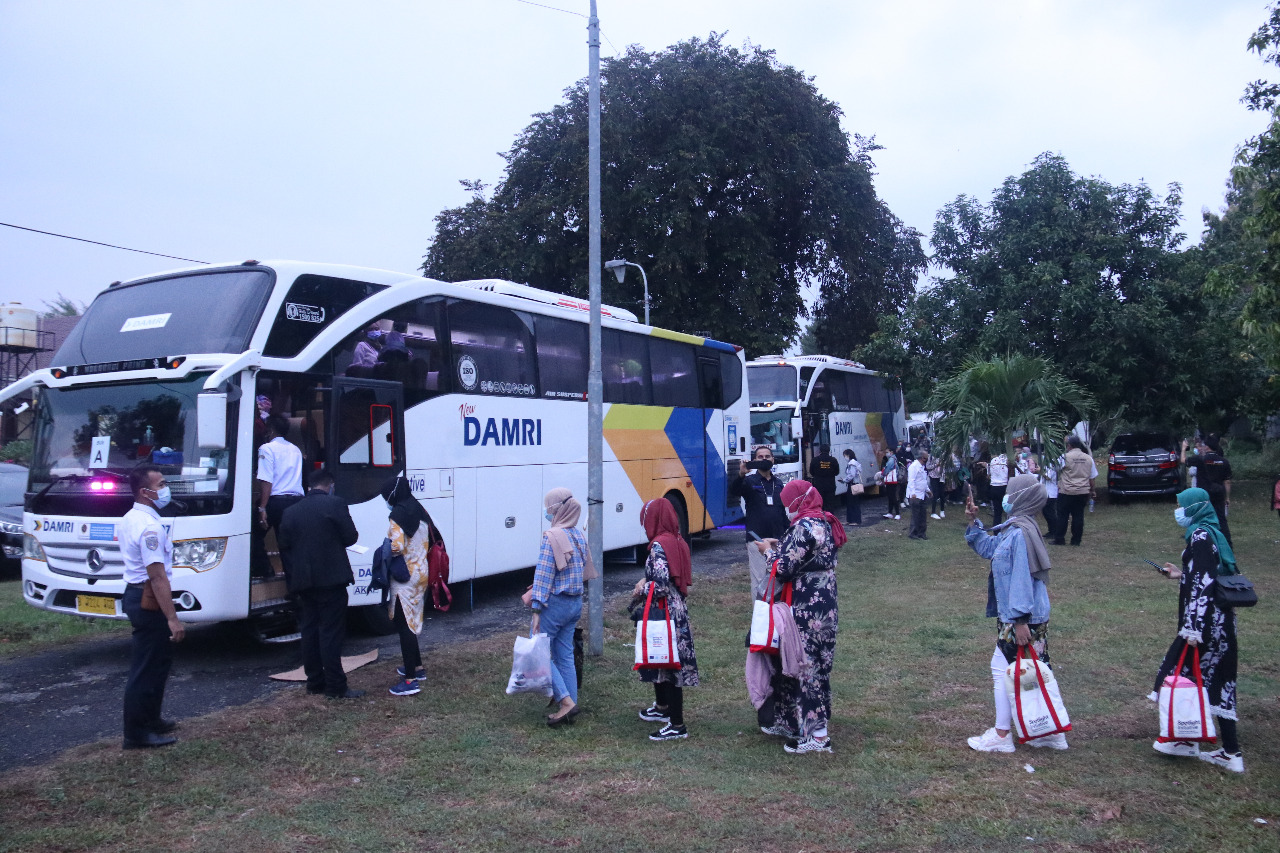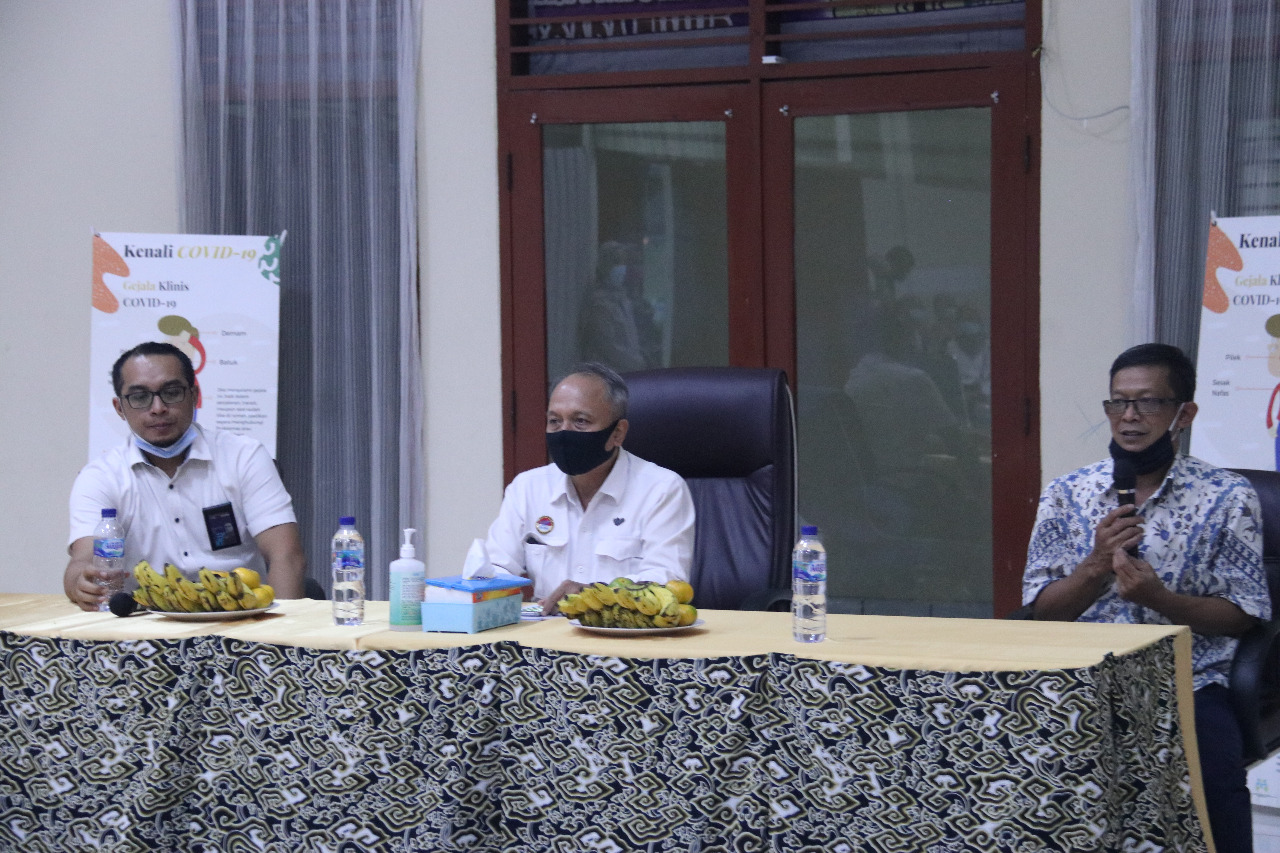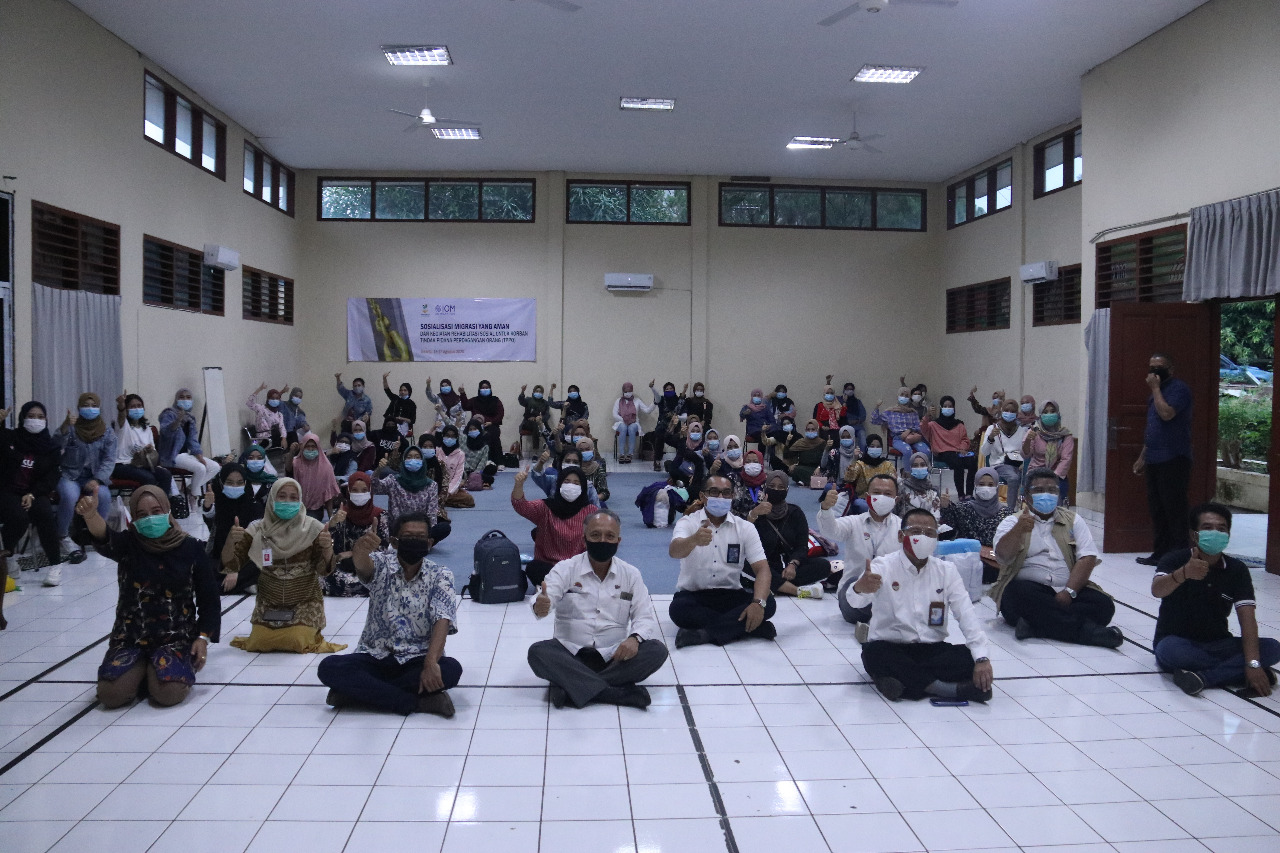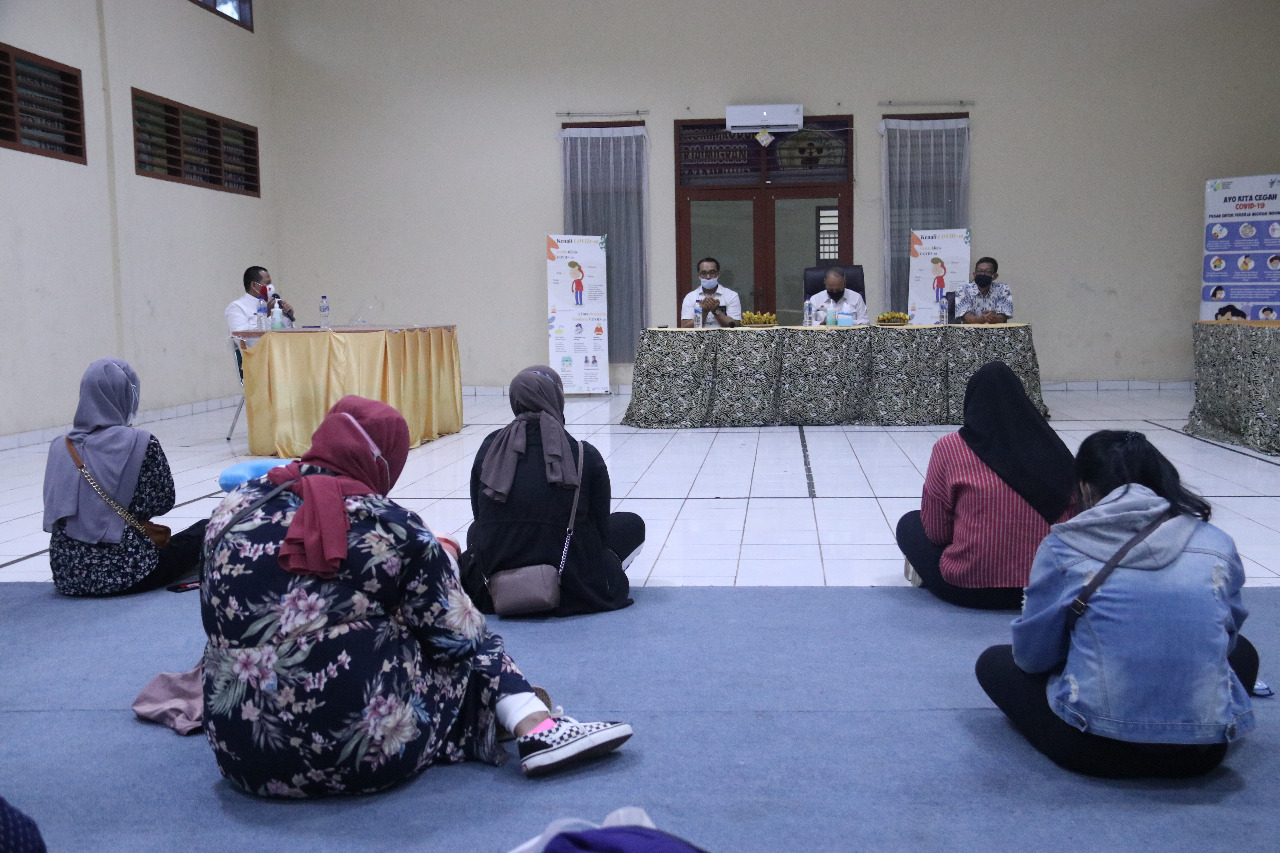JAKARTA (September 15, 2020) — The Ministry of Social Affairs of the Republic of Indonesia through the Protection House and Trauma Center (RPTC) The Directorate General of Social Rehabilitation provides social rehabilitation services to 62 Indonesian Migrant Citizens (WNI-M) from Malaysia who experience termination of employment (PHK) from the company where they work.
These 62 female Indonesian citizens, who are referrals from the Indonesian Migrant Workers Protection Agency (BP2MI), arrived at the RPTC on Sunday, September 13, 2020. They were then given a social worker's guidance/contract and an assessment to explore the problems they face. Social Workers provide counseling services so that PMs can express their problems and wishes in the future.
Based on the results of the assessment carried out by social workers at the RPTC, these Indonesian citizens became migrant workers in Malaysia through official distributors. The recruitment process for prospective migrant workers is carried out in vocational schools, especially in the Department of Clothing, to be distributed to the Vietnam-owned Pen Apparel Garment Factory located on the Penang River, Malaysia. The COVID-19 outbreak caused the garment company where they worked to go bankrupt and had to lay off/lay off employees and relocate their factories to Vietnam. Migrant workers feel sad at being laid off so that they lose their livelihood and can no longer support their family's economy.
“While at the Ministry of Social's RPTC, Indonesian citizens have undergone a social rehabilitation process. The rehabilitation services are in the form of advocating for information about proper migration according to official government procedures, trauma healing and group therapy provided by social workers. Every morning they do gymnastics and sunbathe," said Waskito Budi during the repatriation of Indonesian citizens to their areas of origin, Tuesday, September 15 2020.
The RPTC officers also disseminated efforts to prevent and spread the COVID-19 virus, such as wearing masks, maintaining personal hygiene and health, maintaining endurance, how to exercise regularly, consuming balanced nutritional foods and adequate rest to government directives to carry out physical distancing.
The repatriation of Indonesian Citizens-M was attended by the Director of Social Rehabilitation of the Socially Impaired and Victims of Trafficking in Persons of the Ministry of Social Affairs, Waskito Budi Kusumo, Deputy for Placement and Protection of the European and Middle East Regions of BP2MI, R. Wisantoro, Head of UPT BP2MI DKI Jakarta, representatives of Perum DAMRI and the Indonesian Migrant Workers Union (SBMI).
Meanwhile, Deputy for Placement of BP2MI, Wisantoro stated that this repatriation effort was a form of synergy and collaboration between government institutions including the Ministry of Social Affairs, BP2MI, Ministry of Foreign Affairs, Ministry of Transportation, Perum Damri, and Non-Governmental Organizations. This shows that the government is compact in providing services to its citizens.
“This effort is a form of the government's presence to protect its citizens. Migrant Workers are a state asset to develop the economy in their respective regions," said Wisantoro. Experience and income while working abroad are expected to provide benefits for building the family's economy.
“If a neighbor wants to become a TKI or migrant worker, they should be told to leave legally/procedurally. Further information Please come to the office that handles employment. Don't be easily persuaded by irresponsible brokers," Wisantoro said.
Indonesian citizens want to return to work when the COVID-19 outbreak has passed. Now they want to go back to their hometown and meet their family. Indonesian citizens from Malaysia were repatriated simultaneously to their respective hometowns in the provinces of Yogyakarta, Central Java, East Java and West Nusa Tenggara.
 English
English
 Bahasa
Bahasa




